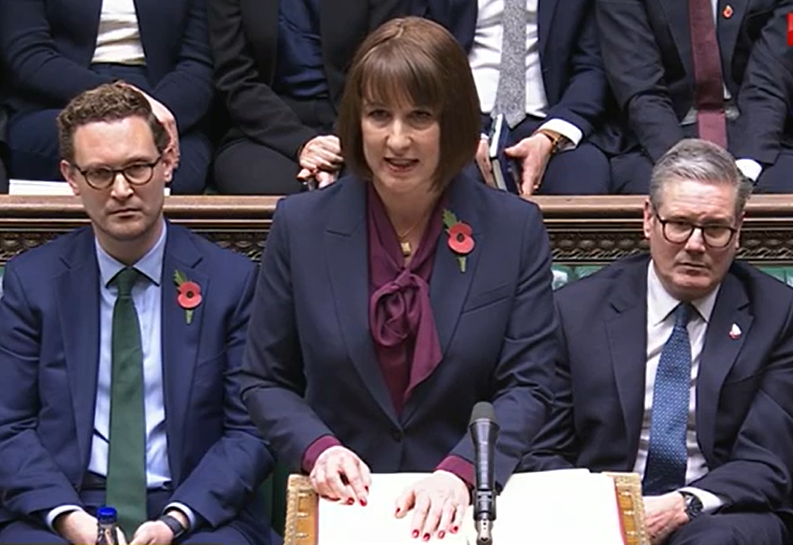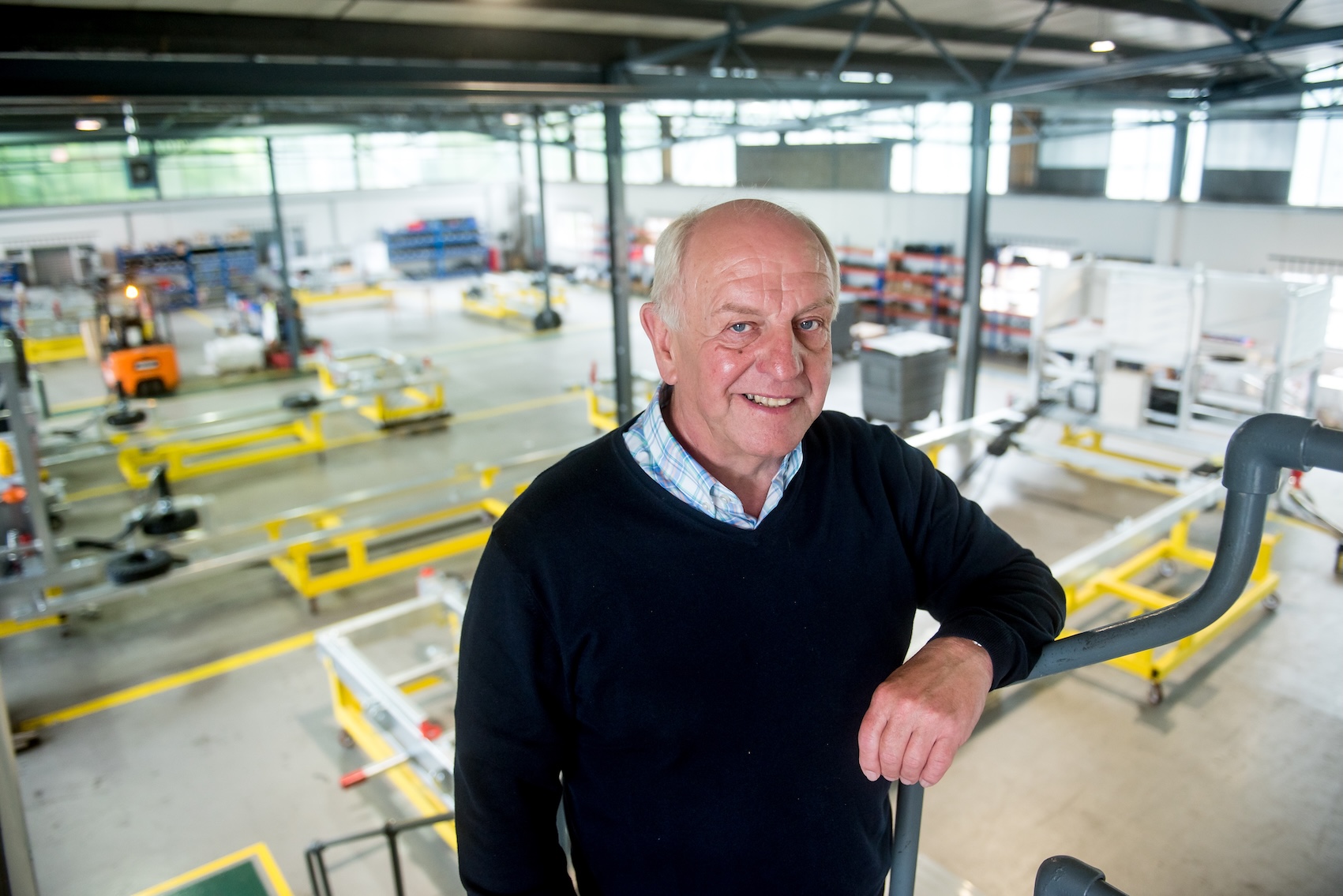Shropshire's business community has delivered its initial verdict on Rachel Reeves' first Budget - the biggest tax-raising Budget in more than 30 years.
There is a feeling that, for many employers already operating on tight margins, the increase in National Insurance which will raise £25 billion is likely to prompt a re-evaluation of salary structures and reduce the prospect of future pay rises.
It has also been suggested that some companies may choose to stop sharing employer NI savings on salary sacrificed pension contributions.

Shropshire Chamber of Commerce says many businesses will be faced with ‘hugely escalating cost pressures’ following today’s tax-raising Budget.
Chief executive Ruth Ross said: “Confidence is still brittle in our economy, and we needed a Budget which gives Shropshire businesses the confidence to invest, and the ability to thrive.
“There is no doubt that the rise in National Insurance for employers, on the back of the announcement of an above inflation increase in the National Minimum Wage, will put a big dent in profitability and be a big worry to many employers.
“The likelihood is that some of these additional costs are now going to be passed onto customers, which could in turn put pressure on inflation.”
She added: “This is the largest tax-raising Budget in a generation, and businesses – many of which are still struggling to recover from the ravages of the pandemic - are being asked to shoulder the biggest burden.
“I’m concerned that raising the rate and lowering the threshold for employers’ National Insurance ill particularly hit Shropshire companies which are employing lower paid workers.
“Combined with the increase in the National Living Wage and other measures associated with the Make Work Pay agenda, many of our businesses will see hugely escalating cost pressures.”
Ruth welcomed some of the announcements in the speech, including a decision to freeze fuel duty – particularly important for rural areas – a tax cut on draught beers to help the pub trade, and business rate relief for the retail, hospitality and leisure industry.
But she added: “We would have liked to have seen a root-and-branch revamp of the business rates system to help our high street traders to compete on a level playing field with online retailers. This is long overdue, and has been swerved again.”
Neil Phillips of Telford-based accountancy firm Phillips Limited, said: "To seek to raise £25 billion of the £40 billion tax rises from one type of tax - employer's NI - is unfair and placing too much burden on employers, although the increase in the employment allowance to £10,500 is welcome for small businesses.
"I think that Employer's NI is one of the most illogical taxes we have because employers should not be punished for employing staff and it is unfair on labour-intensive businesses compared to those businesses who do not need many staff because of perhaps extensive automation (one day there will no doubt be a 'robot tax')."
Hollie Whittles, director of Purple Frog Systems in Telford, said: “I am concerned about the Budget changes which will affect business owners. The statement mentions protecting working people - however owners of businesses have not been afforded that protection. The rises in tax will likely impact investment and entrepreneurship which this budget was supposed to be about.”
Claire Brook, Employment Law Partner at Shrewsbury-based Aaron & Partners, said: "Many small businesses will see the hike in national insurance contributions announced by the Chancellor today as a considerable burden – at a time when they are already managing a complex cost landscape.
“Beyond the direct increase in payroll expenses, an increase of 1.2 percentage points and a reduction in the threshold at which employers start paying from £9,100 to £5,000 will bring additional administrative requirements, as companies adjust budgeting, payroll processes, and financial forecasting to accommodate the changes.
“For smaller businesses especially, these adjustments may stretch resources as they work hard to balance new costs with ongoing investment in staff and operations. Employers looking to support their teams and sustain growth will need to factor these increases into business planning, potentially impacting hiring decisions and wage and employee benefits structures in some sectors.”
Anton Gunter, managing director of Global Freight Services in Telford, said: "As expected Labour is back in power and guess what - taxes go up. Spending is up and the only way to pay for the spending is to increase taxes on an easy target. And that target is private business.
"There has been no tax breaks for business, yet the rises are forthcoming. There has been no acknowledgment of how business got the UK through both Brexit and Covid, yet as the new government settles down and starts its work and ultimately starts to spend money that it doesn’t have, someone has to cough up and guess what - it's manufacturers and businesses that will foot the bill.
"Nowhere is there any relief for small to medium size business in terms of higher running costs. The Government's biggest problem is that they don’t actually know who they are targeting, . . . working people, non-working people, big business, little business, rich people, poor people. I wish we could get people in power who actually run businesses to give their inputs into what we need as a business community."
James Clark of WR Partners in Shrewsbury (pictured), said: "Rachel Reeves cautioned that it would be a painful Budget, with those bearing the broadest shoulders shouldering the greatest burden. It seems businesses and business owners will feel the impact most. Whilst some of the tax increases announced today were expected, the severity of them were perhaps not."

But he highlighted some of the more 'difficult' news. "Until now, business owners and farmers have been shielded from inheritance tax on their business and agricultural assets. However, starting in April 2026, this protection will change.
"From that point forward, only the first £1 million in combined business and agricultural assets will be exempt from IHT, while the remaining value will receive just 50% relief—effectively taxing these assets at 20%. This marks the end of passing on a business or agricultural interest to the next generation without potential tax implications.
"The Government will, however, introduce legislation to extend the scope of Agricultural Relief to environmental land management from 6 April 2025. In a more worrying announcement, the Chancellor announced there will be a consultation to bring unused pension pots into the scope of inheritance tax from April 2027.
"There was also an announcement that 100% IHT relief for shares on the AIM and similar markets would reduce to 50%."
Johnny Themans of business growth specialists Good2Great in Bridgnorth said: "The burden of raising funds in this budget has certainly landed on businesses, but it's encouraging to see some protections in place for our smallest enterprises, along with measures for entrepreneurial investment and high street businesses.
"The changes to entrepreneurs' relief, however, raise concerns, as we may see some business owners bringing forward their exit plans. This is a significant shake-up, albeit one that many anticipated.
"Now, more than ever, we need a period of stability and a supportive, growth-focused message from the government. Creating an environment where small businesses can thrive is essential for sustaining our local economy."
Ben Coates of Moogies Media , a marketing and videography business, described the Budget as 'a disaster for entrepreneurship'. He said: "How can you expect people to invest when you've taken money away from that group of people?"
Alasdair Hobbs, owner of Human Results based in Telford said: "The minimum wage hike and national insurance, for the young especially, is going to make smaller employers especially to think twice about their resources and I worry that it will impact on the number of training opportunities for graduates, and a rise in youth unemployment in particular.
"I have spoken at length recently about business owners being worried by the incoming Employment Rights Bill, and many of my clients are saying they simply don't want to recruit new staff unless they absolutely have to.
"I can understand why small business owners in particular will be feeling rather frustrated with this budget, which at face value seems to be hitting them with tax rises and National Insurance contribution increases which will have a negative impact on their bottom line."
Carrie Stokes of Spotlight Accounting in Shifnal said: "The increase in the Employment Allowance and the freeze on property capital gains tax rates offer welcome relief. However, Inheritance Tax will require much more strategic planning.
"With higher employer National Insurance contributions, new employment rights starting from day one, shorter waiting periods for sick pay, and a higher minimum wage, many small businesses may be cautious about expanding their workforce. Labour-intensive sectors, in particular, may need to raise prices to manage these increased costs effectively.
"Prima facie, I can't see how these tax increases and savings will deliver the additional spending that has been committed."
Graham Corfield (pictured), chief executive and founder of Telford-based aviation specialist Aviramp, welcomed talk of new investment in green initiatives and the publication of a roadmap setting out the tax policies businesses can expect from Labour over the current term of government.
But he said that making it more expensive for businesses to employ people by putting up National Insurance payments for employers was the wrong policy for a Government which claimed to be promoting growth.

“The National Insurance hike for employers not only breaks the spirit of the promise made in the Labour Party’s election manifesto, it undermines the government’s claim to be driving growth."
Gary Preston, a director of Fourtress Group, said: "The increase in SDLT from 3% up to 5% according to the government is due to them being 'committed to reforming stamp duty land tax to raise revenues while supporting those buying their first home'.
"Raise revenues? We’ll have to wait to see as it could slow down the investment market further. The initial 3% when first added was very unclear if it did what it was intended to do.
‘Supporting those buying their first home’…the average house price is almost 9 times the average salary. SDLT wil not affect this. This is clearly another uneducated way of trying to raise revenues . . . just like VAT on school fees."
Mark Bramall, a director at Dyke Yaxley, said: "The NI hikes were expected and perhaps slightly softened by the increase in the Employment Allowance. This then seems to have been taken straight back with the lowering of the NI threshold for where employers contribute.
"During the course of this year the rise in minimum wages has been one of the biggest challenges for many business owners and so the decision for taking on staff will be one made with some reluctance.
"There is some relief from the endless speculation about the changing CGT rates for business disposals. At least now we know and can plan for the changes.
"My overriding view is an unsurprising budget in many ways as we hadn’t had any leaks as to how they want to really help our SME’s and we struggle to find them. I suspect many businesses in Shropshire will be disappointed with today’s budget."
Manufacturing confidence is likely to remain low for some time in the wake of the Budget, according to commercial cheese and dairy specialist Bridge Cheese.
Managing director Michael Harte said the increase in National Insurance payments for employers coupled with pessimism about the state of the UK economy would undoubtedly have an impact across the sector.
But he welcomed the government’s commitment to driving environmental sustainability, which mirrored his own company’s determination to cut emissions.
“I have no doubt that the Chancellor has inherited a hugely difficult situation and had a very limited set of cards to play.
“The focus on innovation and commitment to making Britain a clean energy superpower, is certainly a move in the right direction. Time is running out to save this planet for our children and we simply cannot sit back and ignore the science."
And Wayne Carter, managing director of Fabweld Steel Products in Telford, said: “The manufacturing sector is in desperate need of a boost, so the government’s decision to focus on this area through a new industrial strategy can only be good news.
“As an employer which invests heavily in its workforce, I’m pleased to see the government targeting investment in skills and training, but we need to examine what the detail looks like on changes to national insurance and tax implications for employers.
“Manufacturing needs support to help us bring in the technological advancements which will help us to compete, especially when it comes to the green technologies which are already being pushed forward in China and Europe.
“I am very interested to see how these investments will pan out in terms of improving the efficiency and sustainability of manufacturing businesses in the UK.”